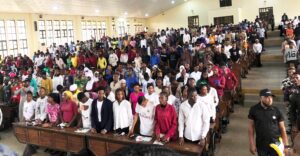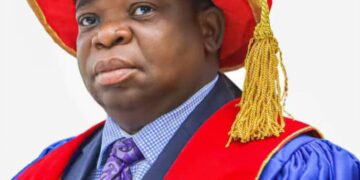No fewer than 6,004 students of The Polytechnic, Ibadan have been confirmed for disbursement under the Nigerian Education Loan Fund (NELFUND), with payments expected to begin within the next two weeks.

This was disclosed on Wednesday, May 21, 2025, during an official visit by a NELFUND delegation led by the Director of Monitoring and Application, Mr. Aliyu Mohammed, to the institution. The visit marks a major milestone in the rollout of the government-backed student loan initiative aimed at improving access to higher education.
Speaking during a high-level engagement with staff and students, Mr. Mohammed noted that the Polytechnic’s early submission of student data and proactive engagement with the fund earned it priority status for the latest round of disbursements.
“We’re here to confirm that NELFUND has come to stay,” he said. “In two weeks, 6,004 verified students from The Polytechnic, Ibadan, will begin receiving their payments. These include full tuition coverage and a N20,000 monthly stipend to support their welfare.”
Mohammed emphasized that the fund is designed to eliminate financial barriers to education and is financed through taxpayer funds. He urged students who have not applied to take the process seriously.
“Any student who hasn’t applied is on their own,” he said. “This fund ensures no Nigerian student drops out due to financial hardship.”
He revealed that 32 students of the institution have already benefited from an earlier pilot phase, serving as proof of the system’s effectiveness.
To ensure long-term sustainability, Mohammed announced that NELFUND will soon launch a job-matching portal for beneficiaries. Upon employment, graduates will begin repaying the loans through a 10% deduction from their monthly income.
“This is not just about loans. We are creating a bridge between education and employment,” he said.
Welcoming the delegation, the Acting Rector of the institution, Dr. Taiwo Abideen Lasisi, described the initiative as a game-changer, particularly for public institutions serving economically disadvantaged populations.
“Many students doubted the reality of the programme, but today, that doubt















